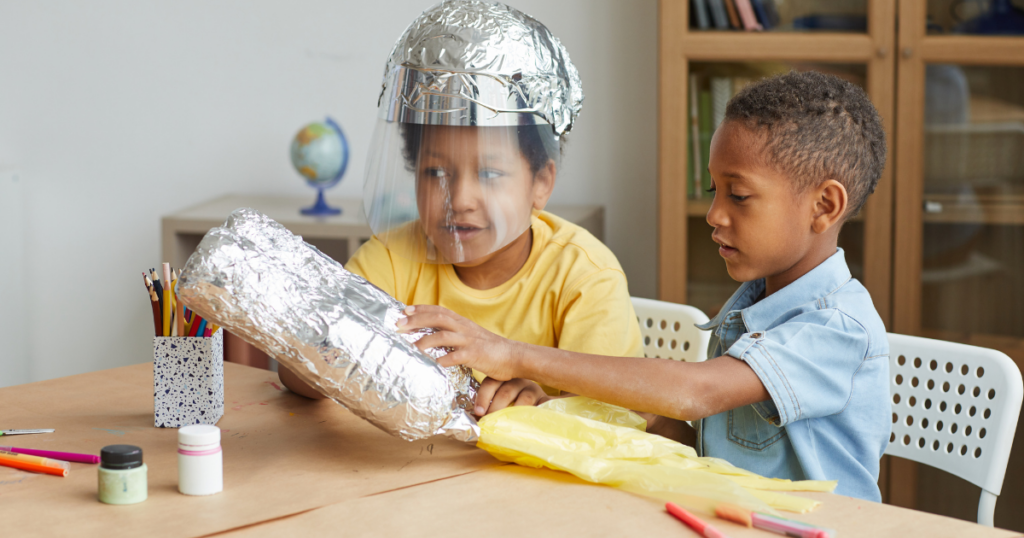How To Prevent Summer Learning Loss (7 Easy Ways)
With summer around the corner, are you wondering how to prevent summer learning loss for the student in your life?
Are you scared of your student losing everything they’ve achieved this year, or are you concerned that they will fall further behind?
If you can relate, you are not the only one; this concern has plagued parents for the last 100 years!
Some research claims students lose up to 40% of the gains made over the school year, a horrifying statistic for kids already struggling.
To add insult to injury, many school districts lack summer programs, and those available are only affordable to some.
What is a parent to do?
Take action!
Summer learning is about keeping those bright minds engaged and gaining more knowledge- and we will show you seven ways to do just that this summer.
Let’s get started.
What is summer learning loss?
Summer learning loss, also known as the summer slide, was first introduced as a concept in 1996 when it was first studied.
It refers to the potential for learning loss during summer break, when children are away from the formal teaching environment and other educational opportunities.
Yet, according to Paul von Hippel of the University of Texas at Austin, the amount of loss is up for debate. Varying methodologies, times, and scoring all produce different results, making the claims unreliable.
With that said, two things remain true in all the counter-studies: one, kids don’t learn math and reading skills during the summer as they do during school, and two, summer programs help those who are behind.
It’s essential to support students who cannot attend summer schools in keeping up these skills during the summer break.
How do I stop summer learning loss?
We’ve created a list of easy ways to help your kiddo stay sharp this summer. From the simple and free options to the more structured options, everyone can find some ideas that will work for their family.
- Prioritize Reading. Reading and math are the two most important subjects to focus on during the summer, so keeping up with reading is a must. Libraries across the country launch reading programs at the start of the school break, some of which include prizes and fun social activities as well; 15 to 30 minutes a day is all it takes, and with nothing else to study, kids can pick books based on things that interest them. Track their reading progress and treat your reader to a movie based on the book or a sweet treat to beat the heat.
- Make Time for Math. Math can be a struggle for many kids during school, so catching up during the summer is a smart way to go. There are tons of workbooks available by grade level for your child to tackle a few math problems a day. Doing three to four problems daily is a great way to get ahead and keep those skills sharp. Depending on the child, books can be tailored to their interest in space, animals, or special characters to liven up an otherwise dull lesson. Amazon has a great selection of workbooks, and most of them are under $20.
- Play Games. Gaming lessons are a proven way to keep kids entertained and engaged while instructing them on pretty much everything. So use that to your advantage! Board games such as Chutes and Ladders can teach tiny ones to visualize math, while card games like XXX can teach older children the habit of adding quickly. Bedtime Math, DragonBox, and DragonBox Numbers apps have proven to help master math concepts. Classics such as Scrabble, Bananagrams, and others can help your kiddo with reading and vocabulary development. So take the stress off teaching and have some fun with any of them. P.S. Some of these may also be at your library.
- Turn Trips Into Experiences. Summer vacations are fun, but you can get the most mileage from them by introducing a learning element. Read a book set in that city or country to get them excited. If you are taking a road trip, map out your route and calculate the mileage between stops. Have your kiddos search topics ahead of time for each stop. If you don’t have trips planned for the summer, a trip to the zoo or museum is also a great learning experience. Participate in hands-on activities, and talk at length before and after the visit about what you saw for full retention.

- Bake Learning Into Anything. Learning is always better when there is something delicious at the end of the lesson, which is why baking is so helpful in covering math concepts such as multiplication and division. Gardening is another household chore that lends itself to teaching science concepts while allowing students to make a lemonade stand is an excellent way to introduce them to economics. So get creative with your everyday tasks and make the most out of those chores.
- Choose STEM Camps. There are plenty of summer camps to choose from: faith-based, sports-oriented, martial arts, ballet, and dance camps. If you’d like to stoke the interest of STEM in your child, consider finding a STEM camp near you. As the name dictates, it focuses on science, technology, engineering, and math in a creative, hands-on approach- allowing your students to find solutions to real-world problems and building character and teamwork. Are STEM camps too pricey for you? Amazon has hundreds of experiment kits and books for all ages; grab one to supplement all the other activities you’ll be doing with your kiddo this summer.
- Create Your Own. This may take a little doing, but with a bit of creativity and perhaps another parent or two, you can make a successful camp of your own! Choose a focus, run with it, and most importantly, have fun. Learning doesn’t have to be a chore. Put on a neighborhood play, clean a nearby empty lot, or put on a kiddie Top Chef- these are excellent learning experiences that will build on the foundations of reading and math our kids need most during the summer months.
- Let Your Kid Explore. During the school year, there is so much to do, between homework, sports, and other responsibilities- it’s hard to build time to explore topics your kids are interested in. Tap into that. Do they like music? Wonderful! Did you know kids do better in math when there is a music component? Are they curious about space? There are so many things you can teach your child! From the basics of physics to earth science and the math it takes to build an anti-gravity toilet- there is a lot to learn! Have a heart-to-heart with your child; when the worksheets are done and the reading is recorded, what do they want to know about? Somewhere in the midst of their interest may be the key to them getting ahead.

Try One, Try Them All
Although it’s unclear how much students lose the knowledge they gain throughout the year, we know that they don’t gain the math and reading skills they need to hit the ground running in the fall.
This is why summer learning can be so beneficial, especially for children lagging behind.
Whether you choose one of the budget-friendly options or one of the formal camps near you, keeping your child engaged this summer should be top of mind.
Not only will you curve some of the boredom, but you will also help build confidence in the areas where they need help the most.
So try one or try them all who knows your child may not be the only one who learns something this summer.
Which will you try?




